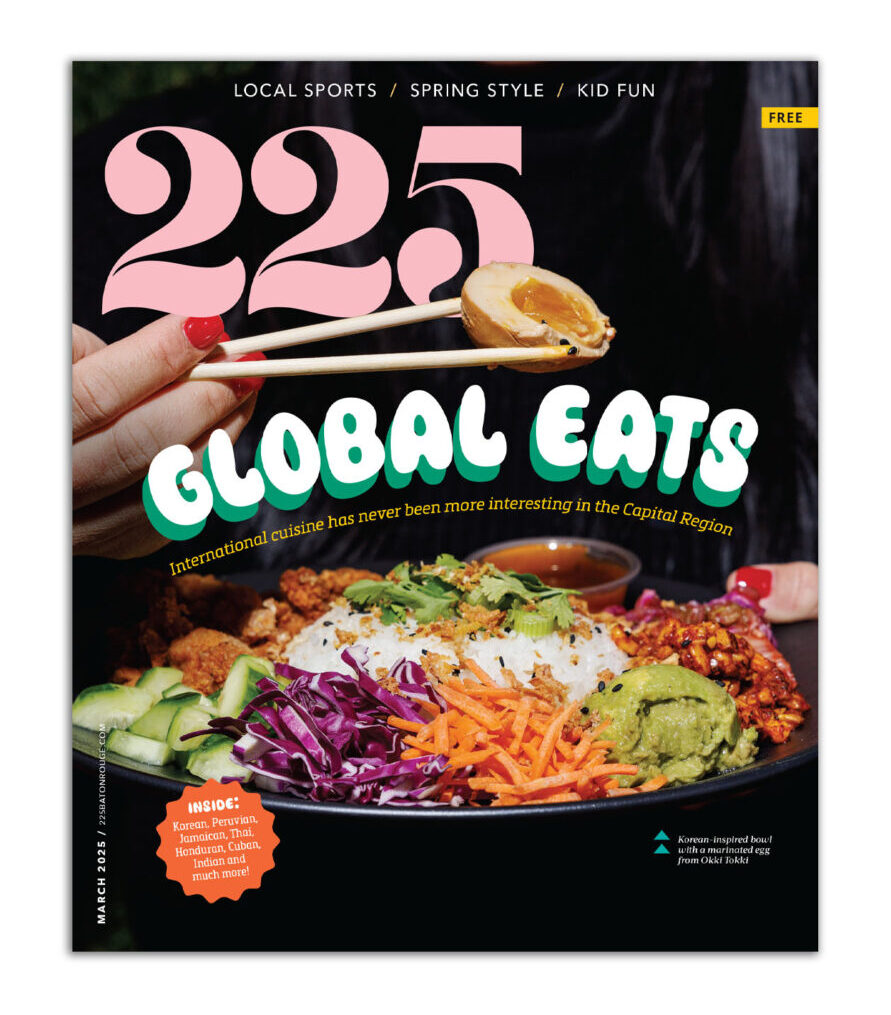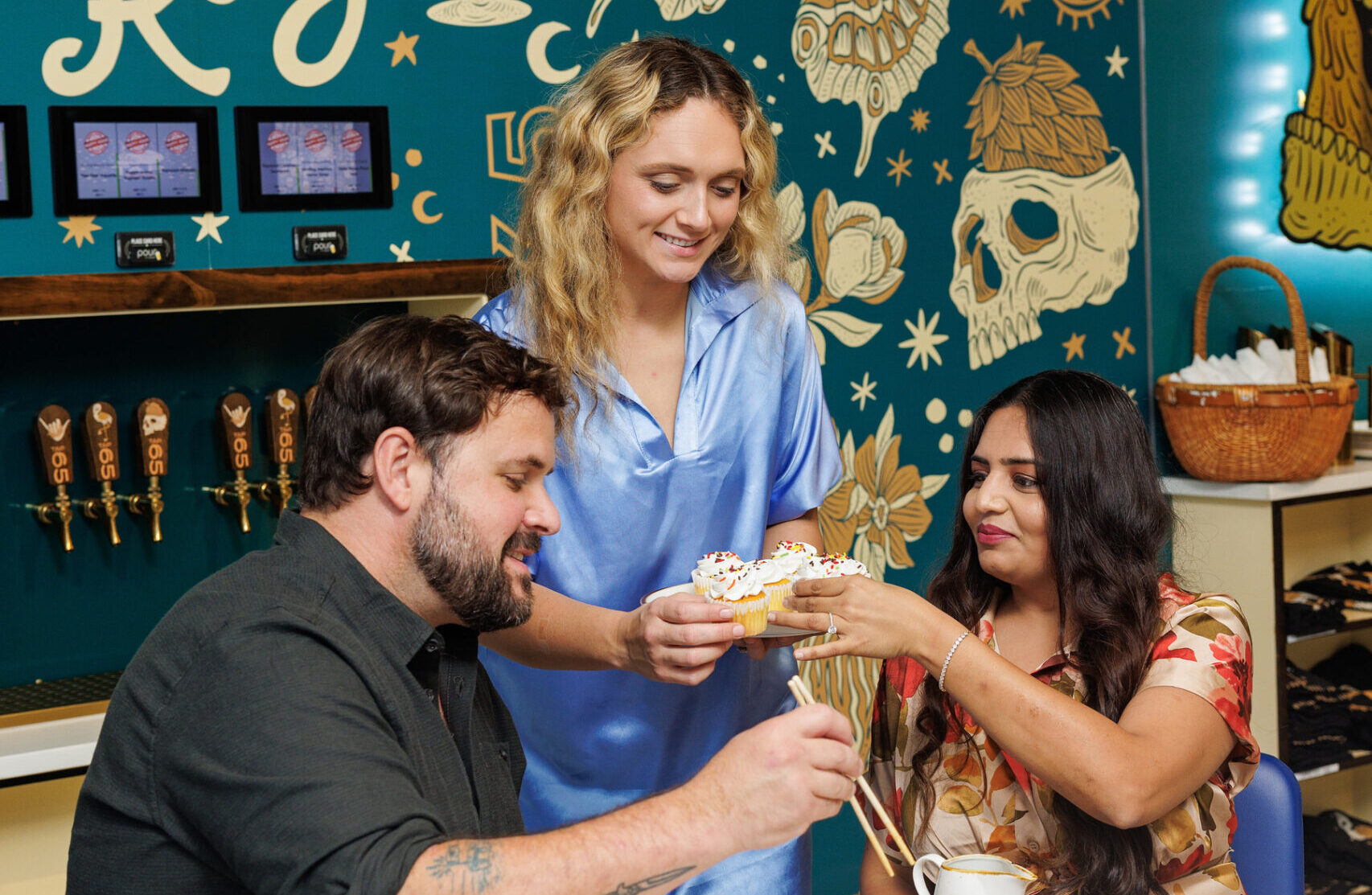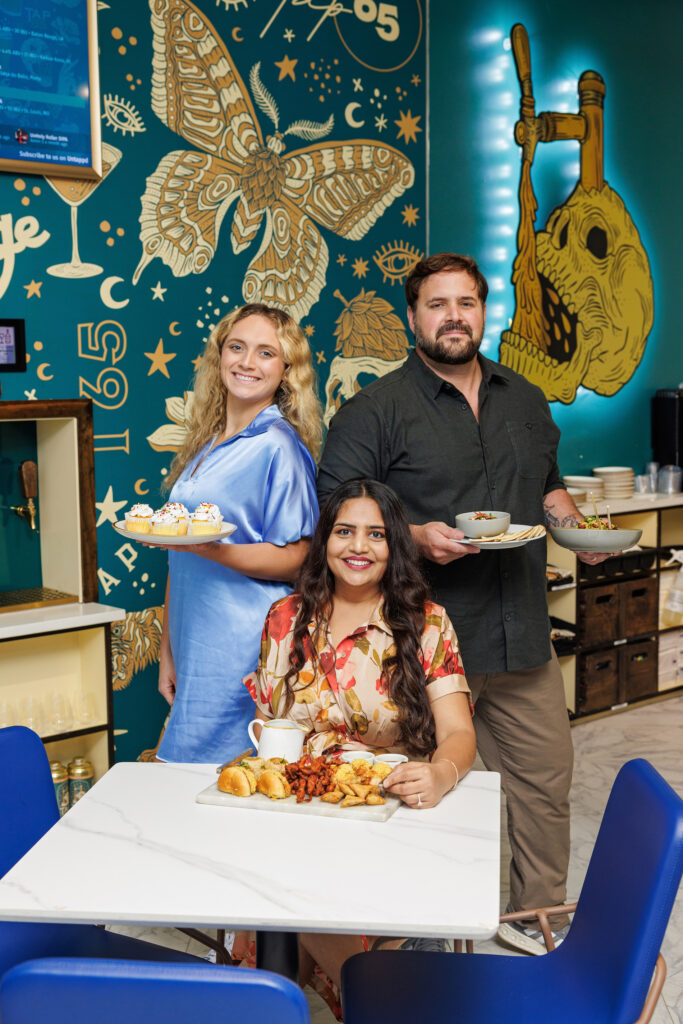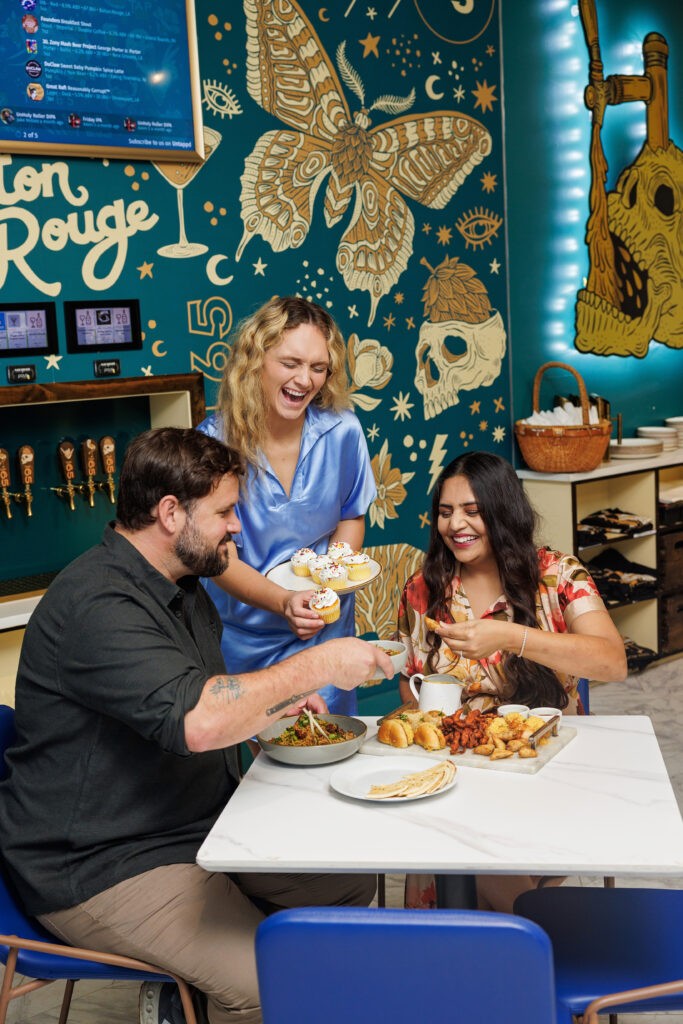What do a bakery, a modern Indian eatery and an Asian street food-inspired restaurant have in common? All three won awards for their plates at this year’s Fête Rouge.
At the annual food and wine tasting supporting the Baton Rouge Epicurean Society, cooks strive to plate dishes that are both crowd-pleasing and unique enough to impress the judges. This year, Madelyn Schmidt Burr of Eloise Market and Cakery, Needhi Patel of Tap 65 and Jordan Ramirez of Chow Yum were among those who donned medals at the end of the night. Burr stepped out of the box and put up a pecan praline cream cheese king cake for the dessert category, earning her a shiny silver medal. Patel’s Tuna Bhel snagged the second place spot in the seafood category, while Ramirez’s Shrimp Aguachile Dumplings took both the top seafood spot and the event’s Best in Show title.
We caught up with the award winners to talk about how they push limits in the kitchen and what’s next for our region’s culinary landscape. Here’s a taste.
|
|
|
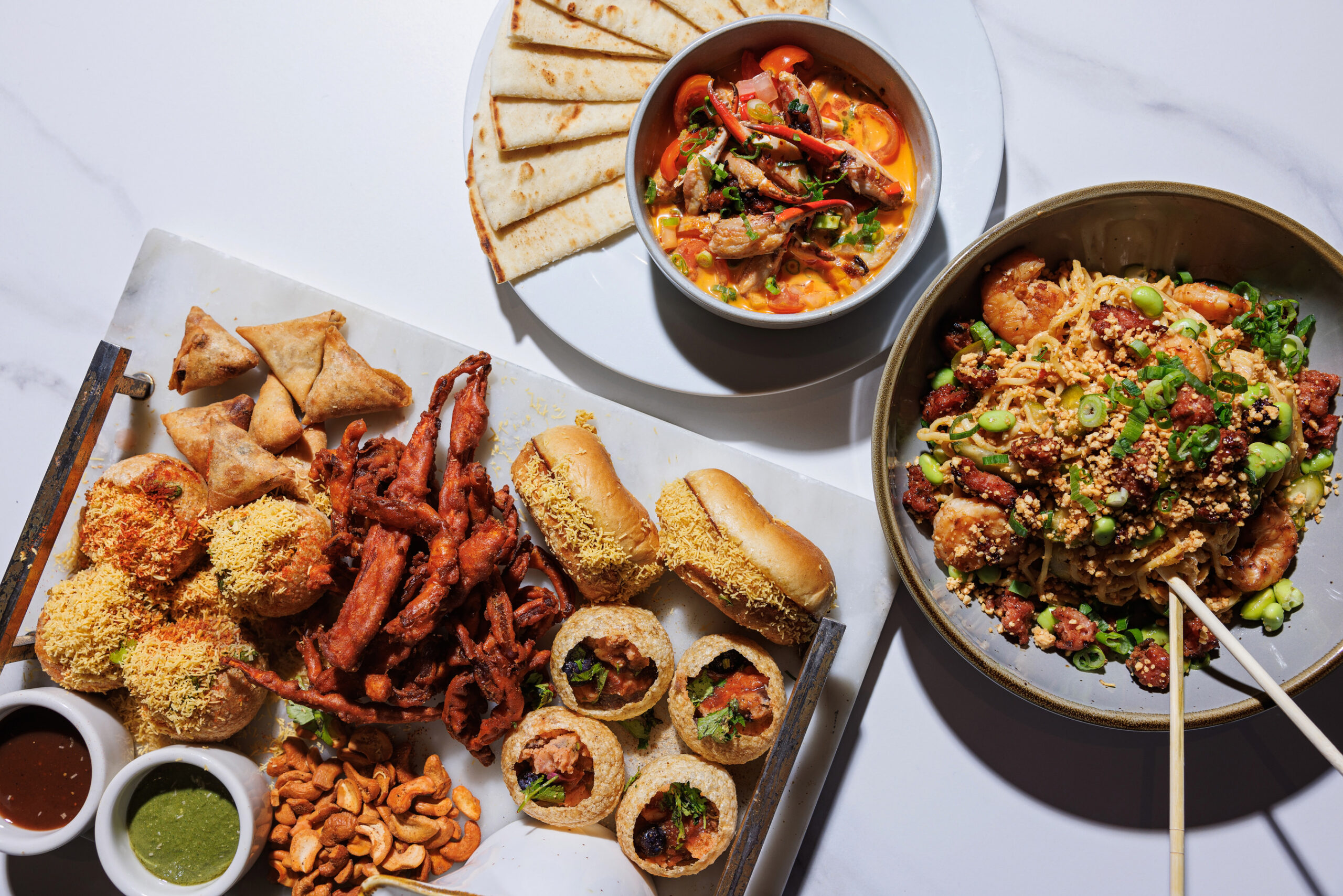
What inspired you to start a culinary career?
Patel: I wasn’t trying to be a chef to begin with. We love beer and Indian food, so we thought ‘Let’s do both.’ I offered to help with the creation and teach the chef how to cook Indian food. Right before the grand opening, the chef we had quit. So, I had no other option but to step up and put the chef hat on. Since then, I’ve been running the kitchen, making new dishes while still sticking to my Indian roots.
Ramirez: I never thought I would do chef stuff. I never actually went to culinary school or had any interest in it whatsoever. I worked at Whole Foods back in the day for a while. I was a manager there for specialty departments like beer, wine, cheese and coffee. That’s kind of where I got my interest in food. I started doing beer and wine classes every month there, and that’s where I started cooking.
Burr: I always knew that I liked to cook and eat, and I always knew that I wanted to be behind the scenes of something. … I realized that I love cooking, but I don’t want to do what I love (for work) every day. I’m not going to go home and bake. At home, I like to cook and I don’t want to go home and be like ‘Aw, I don’t want to cook dinner.’
How do you come up with new dishes?
Patel: I’ll try different techniques. I will experiment with flavors and ways to cook it. That’s how we came up with a dish like Tuna Bhel (from Fête Rouge). That was a completely different creation made from mixing some things together and turning it into a dish that won competitions.
Ramirez: Discovering new ingredients, or following trends from the restaurants in other cities. A lot of it comes from seeing what’s going on, discovering things and evolving it to see what can we do at our restaurant or what makes sense here.
What is the best dish you’ve ever created?
Patel: The Tuna Bhel.
Burr: The Wedding Cake Cookie. We do the Almond Cake Cookie with condensed milk cream cheese. That’s the recipe that I came up with because I was just thinking about how much my mom loves a wedding cake snoball.
Ramirez: My favorite menu item is probably our Crispy Pig Ears. … Off the menu or from events is probably my dish from last year’s Fête Rouge. We did a cioppino—it’s like a San Francisco seafood stew. I did a curry version of it, and I thought it was one of the best dishes I’ve ever made.
Why is it so important to stay innovative in the kitchen?
Patel: The industry is evolving and things are trending. As a foodie, when I go out or go to the same spots, I want to see something new or creative. That keeps bringing me back to that same place, because I know in the back of my mind that I’ll be getting new food.
Talk to us about mentorship. Who do you look up to in the culinary world?
Patel: The biggest influence in my life is my mom. When I was young, I used to cook with her and learn new things. But I never thought that would turn into a passion where I was running my own restaurant. … All the basics of cooking I’ve learned from her. To this day, if I don’t know something, my first call is to my mom.
Ramirez: When I started coming up in Baton Rouge, there really wasn’t as big of a culinary scene. … So for me, it was my mom and my sister, who went to culinary school in Austin. They would send me cookbooks. I think my first one was like a Bobby Flay cookbook. So that’s probably where I started.
Burr: I was inspired by Yvette Bonanno (of Bonanno’s Fine Catering and president of the Baton Rouge Epicurean Society). I also talked to John Theriot in my family. … He just told me ‘No matter when you jump in, you have to learn how to swim. So, just swim. And if you refuse to drown, nothing is going to go wrong.’ I had a lot of people like that who just encouraged me to go for it.
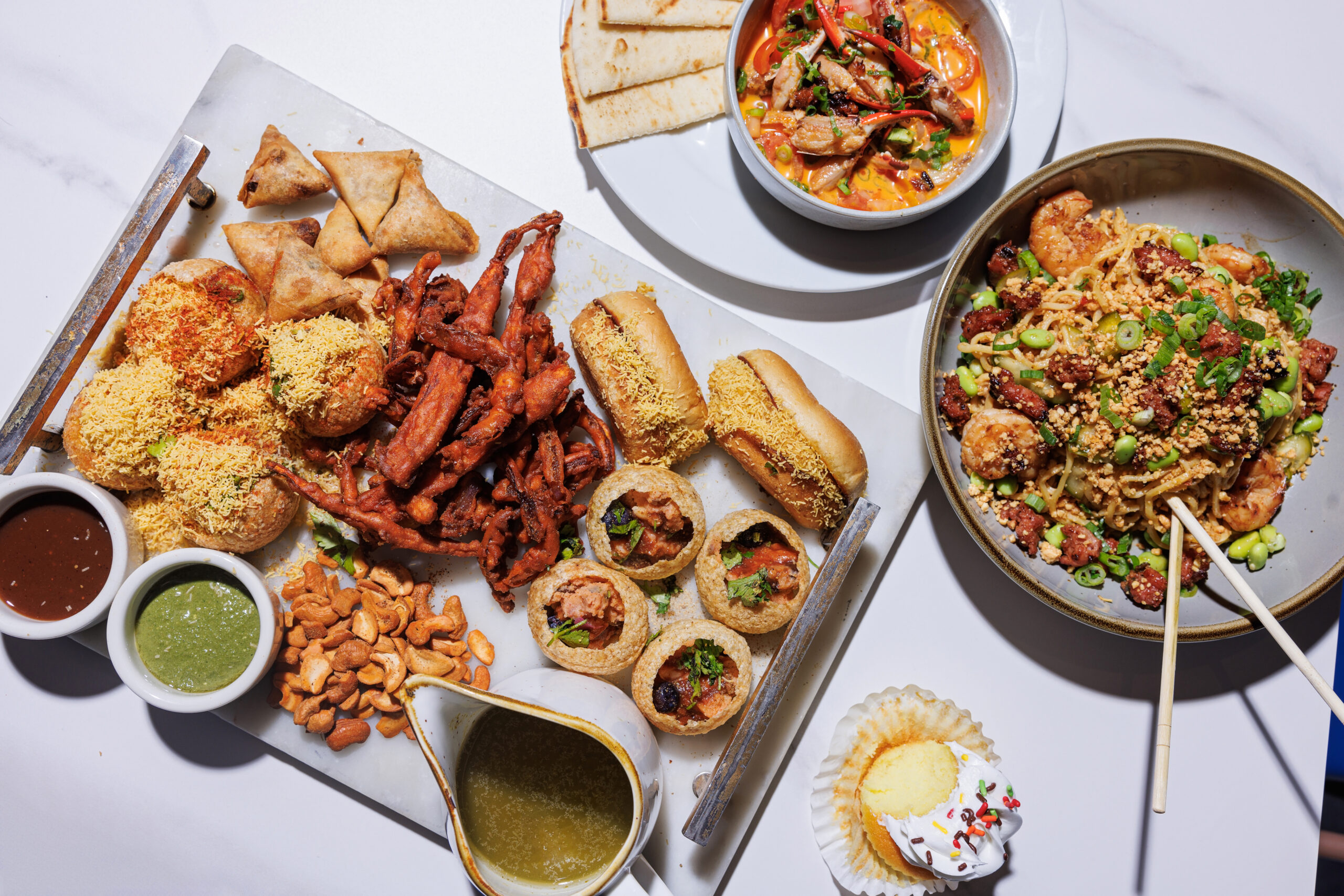
What advice would you offer young culinary stars who are just starting out and dream of being where you are right now?
Burr: Just start. … It’s OK to be at the bottom of the totem pole. Because one thing I’ve found out is you’re still on the damn totem pole.
Patel: Work first before you expect someone else to do it for you. … Nobody is gonna make you money. You’re the only person who can make you money.
Ramirez: Be smart about your decision to open a restaurant. … Just take your time. Ask lots of people. Get a good feel of what you’re trying to do, where it’s going to be and the culture around it. It’s a big decision.
What’s a hot take you have about the restaurant industry right now?
Ramirez: I think there’s been a void of young talent in Baton Rouge for a while. … I feel like we’re probably hopefully on the edge of something like that happening again.
|
|
|
Patel: I just started, but I have noticed that it’s a very challenging industry, especially when you are competing with chefs who have been in the kitchen for 20 or 30 years. Then, when you try to work with them, you get that you don’t know what are you doing, or you just got here. I wish they were more welcoming with open doors for everybody. Because I’m sure when they started, they had the same challenges.
Burr: I feel like a lot of culinary concepts around here are focused on the experience. And while that is important, they don’t focus on the quality or being personable.
This article was originally published in the December 2024 issue of 225 Magazine.
